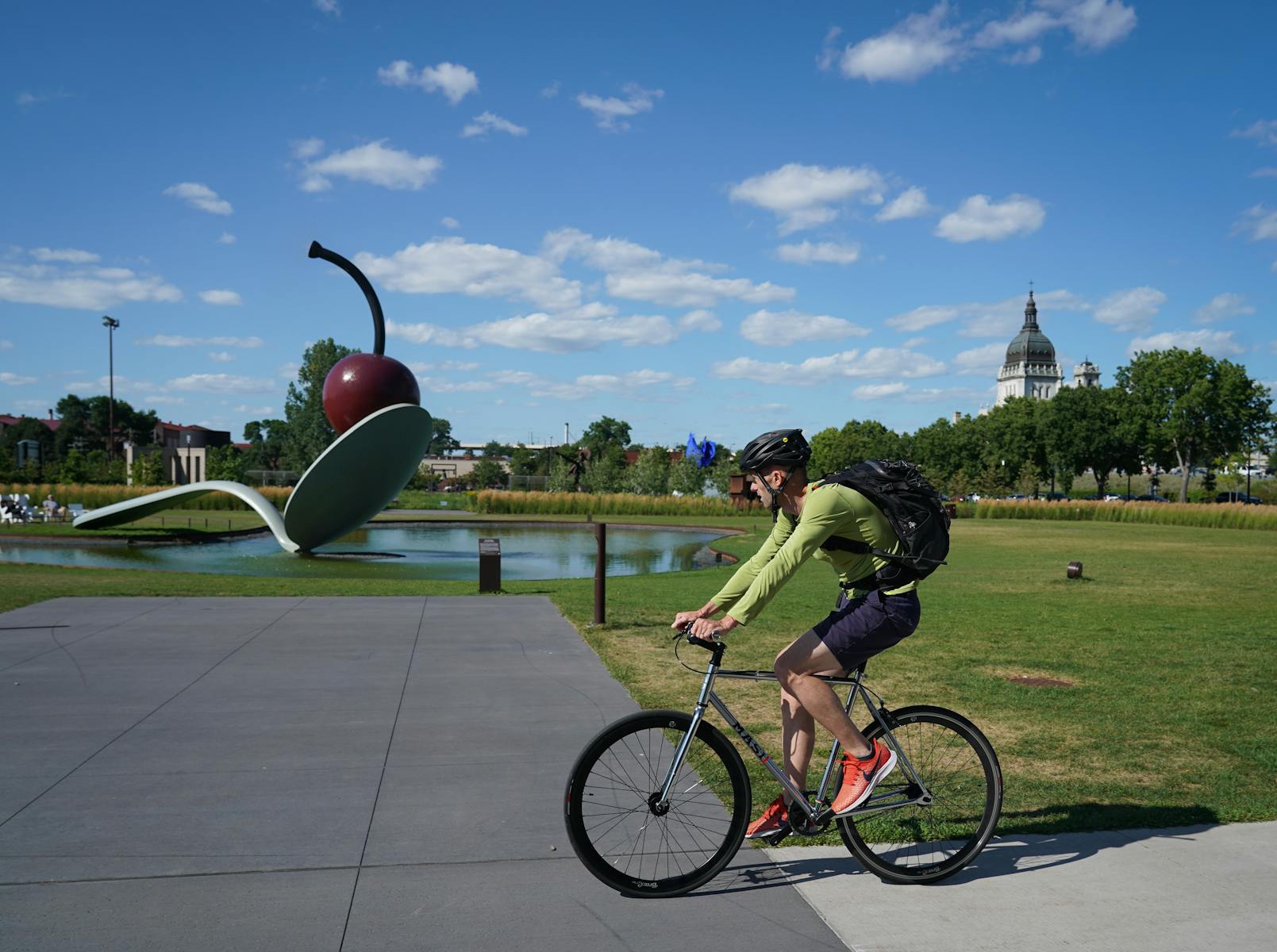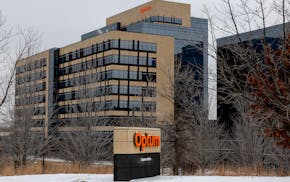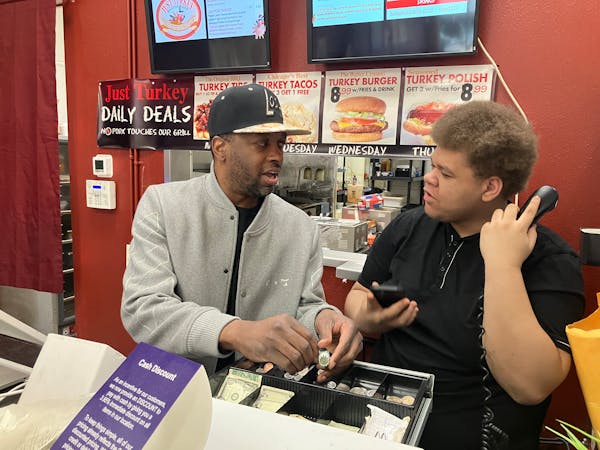
In the wake of civil unrest over the police killing of George Floyd in 2020, would-be visitors — from the suburbs, small towns and neighboring states — kept their distance from Minneapolis.
A stigma about Minnesota's largest city was fueled by occasional reports of violent crimes and theft, dampening tourism and recreation.
In an effort to reverse negative beliefs about life in Minneapolis, and to remind people of what they're missing, the city's tourism agency is launching a new marketing campaign to convert wary explorers back into regular visitors.
Meet Minneapolis' "See What All the Fuss is About" campaign targets those living within a 300 mile radius of the city, in places like Duluth, St. Cloud, Mankato, Rochester as well as cities in North Dakota, South Dakota, Iowa, Wisconsin and potentially Canada, said Melvin Tennant, chief executive of Meet Minneapolis.
More than 60% of the city's visitors come from the suburbs, Greater Minnesota and bordering states, Tennant said.
The pandemic, coupled with the civil unrest, damaged the city's tourism and hospitality sectors. With business travel slow to return, leisure visits have become a priority for the agency in supporting the recovery.
In 2019, Minneapolis hotel occupancy was 69%. It fell sharply to 21.4% and 29.9% in 2020 and 2021, respectively, according to Meet Minneapolis. In 2022, occupancy rose to 46.8%.
This campaign is the agency's largest in a decade, Tennant said. Produced in partnership with Minneapolis-based advertising services firm Periscope, it highlights the city's restaurant scene, landmarks, recreation opportunities and arts and entertainment industry.
The campaign will be a mixture of advertising in print, radio and television, on billboards and online, in addition to social media, Tennant said. The agency plans to spend about $500,000 on the campaign this year, an amount Tennant hopes to maintain over the next couple of years.
"We wanted to, as we say, take back the mic," Tennant said. "We've had a lot of negative media about Minneapolis over the last three years and we want to be very, very clear in the way in which we convey what the true assets and attitudes are of Minneapolis. This was really meant to get the attention of people who may have been negatively influenced by media, images or reports that they had heard."
That includes downtown Minneapolis, an area some would assume has faltered after large companies began allowing employees to work from home, creating hardships for some businesses that rely on a downtown workforce seeking goods and services.
Anecdotal information on safety issues didn't help, feeding fear into the minds of visitors that downtown has become "a place that they might not want to go," Tennant said.
"But if you really look at the facts, you see really great traffic at the theaters," he said. "You look at the various sports teams, you look at more and more restaurants opening, and more and more workers coming back downtown. It has definitely returned back to the type of vibrancy that people remember."
According to rankings compiled by researchers at the University of Toronto and University of California-Berkeley, downtown Minneapolis has regained 51% of its economic and social activity when comparing a three-month period in late 2019 to the same period in 2022.
While promising, Minneapolis' recovery fell toward the bottom in a ranking of mid-sized cities in North America. Minneapolis is far below overachieving Salt Lake City, with downtown activity that now exceeds pre-pandemic levels, but better than San Francisco, which has recovered just 31% of its downtown activity during the same period.
As for safety in the city, violent crimes, which includes homicides, rape, robbery and aggravated assaults, are down 20% in 2023 through March, after falling 7% by the end of 2022, according to data from the Minneapolis Police Department.
Property crime in Minneapolis, meanwhile, which includes burglary, larceny, auto theft and arson, have jumped 10% this year.
A Star Tribune analysis of crime statistics from eight other mid-sized cities including Arlington, Atlanta, Cleveland, Colorado Springs, Milwaukee, Oakland, Omaha and Raleigh largely showed similar ebbs in violent crime rates and increases in property crime rates in 2022 compared to 2021.

Prairie School house on Stillwater's Lily Lake listed for $825K
Woman arrested after leaving dead baby in Minneapolis homeless encampment
New type of electric engine powering Graco's latest round of innovation

DOJ urges judge to keep alive whistleblower lawsuit against UnitedHealth Group
![Gas was $2.39 at the BP gas station ay 46th Street at Lyndale in South Minneapolis. ] GLEN STUBBE * gstubbe@startribune.com Friday September 4, 2015 P](https://arc.stimg.co/startribunemedia/4U372WPXFGGQGQHPL2CTC4SFUY.jpg?h=91&w=145&fit=crop&bg=999&crop=faces)

